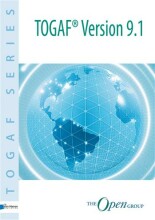Summary: Cognitive Psychology 2
- This + 400k other summaries
- A unique study and practice tool
- Never study anything twice again
- Get the grades you hope for
- 100% sure, 100% understanding
Read the summary and the most important questions on Cognitive Psychology 2
-
Memory 1
This is a preview. There are 13 more flashcards available for chapter 15/01/2015
Show more cards here -
Memory requires 3 distinct process, what are these processes?
1. Encoding - information must be represented within memory
2. Storage - the encoded information must be stored and retained
3. Retrieval - the stored information must be retrieved at relevant moments -
What is the difference between the research of Ebbinghaus and that of Atkinson & Shiffron?
Ebbinghaus - evidence suggests 2 memory stores
Atkinson & Shiffron - 3 memory stores -
How was auditory partial report tested?
Experiment: Subjects were simultaneously presented with 3 sets of letters - one set to the right ear, one to the left, and one to both. After each stimulus presentation subjects recalled as many of the letters as they could with whole or partial report.
Results: memory of the event only decreases slightly after 1 second = different from iconic memory which is extremely short.
Note: the auditory store is known as the echoic store
Conclusion - Echoic memory holds information longer than the visual iconic memory = shows auditory & visual memory are different cognitive processes -
What did George Miller (1957) report in his research, "The magic number seven; plus or minus two"?
Experiment: on each trial, subjects hear a series of numbers which were to be recalled immediately after. The length of each series varied.
Results: subjects could remember 7 items plus or minus 2 = the short term memory is limited to around 7 items
Note: "seven plus or minus two" refers not just to numbers, but also to the number of pieces of information -
Memory 2
This is a preview. There are 12 more flashcards available for chapter 22/01/2015
Show more cards here -
What is another word for non-declarative memory? What two types of memory are examples of this?
Implicit memory - memories you do not know you have i.e. learning without conscious awareness of having learned
- procedural
- priming
- conditioning -
Memory 3
This is a preview. There are 6 more flashcards available for chapter 29/01/2015
Show more cards here -
What experiment shows the effect of priming on implicit memory?
Experiment - participants were shown a list of words. After one hour, they were asked to complete word fragments
Results - participants were better at completing the list that pertained to words on the original list i.e. even if there were other words that could be completed in the fragments, participants would choose the words thay have already seen on the list -
What experiment shows the effect of semantic priming?
Subjects are firstly presented with words for approx. 30ms (followed by a mask) and required to identify the word = subjects are not able to do this = the words were below the perceptual threshold
Subjects are then required to indicate (as quickly as possible) whether a string of letters is a real word or not. This occurs under two conditions: the test word is either semantically related to the prime (mask) or not
Results
If the prime and test word are not semantically related, participants are slower in identifying whether the test word is a real word or not. -
What 3 things can be said about implicit memory?
- the notion of implicit memory is controversial. The evidence is mixed
- many tests using real world stimuli fail to show evidence of implicit learning, but many laboratory-based tests do
- when evidence of implicit memory is shown, it has a different behavioural signature to explicit memory i.e. it is longer lasting -
What is context dependant memory?
The influence of context/environment during the learning phase on subsequent recall i.e. material learned in one environment may be more difficult to recall if that recall occurs in a different environment.
Context dependant memory relates to encoding specificity i.e when we encode something into memory we don't only encode the isolate item, we also encode the environment -
What experiment studies context dependant memory? Why is this experiment limited?
Godden and Baddeley (1975)
- two groups of divers: one group learns list of words on the beach, the other group learned the lists under water
Results
Recall was better for words learned and recalled in the same context/environment
This experiment is extremely limited - learning on the beach & then going into the water = you need to put diving gear on = your rehearsal is limited compared to those who stay on the beach for learning and recall
- Higher grades + faster learning
- Never study anything twice
- 100% sure, 100% understanding

































